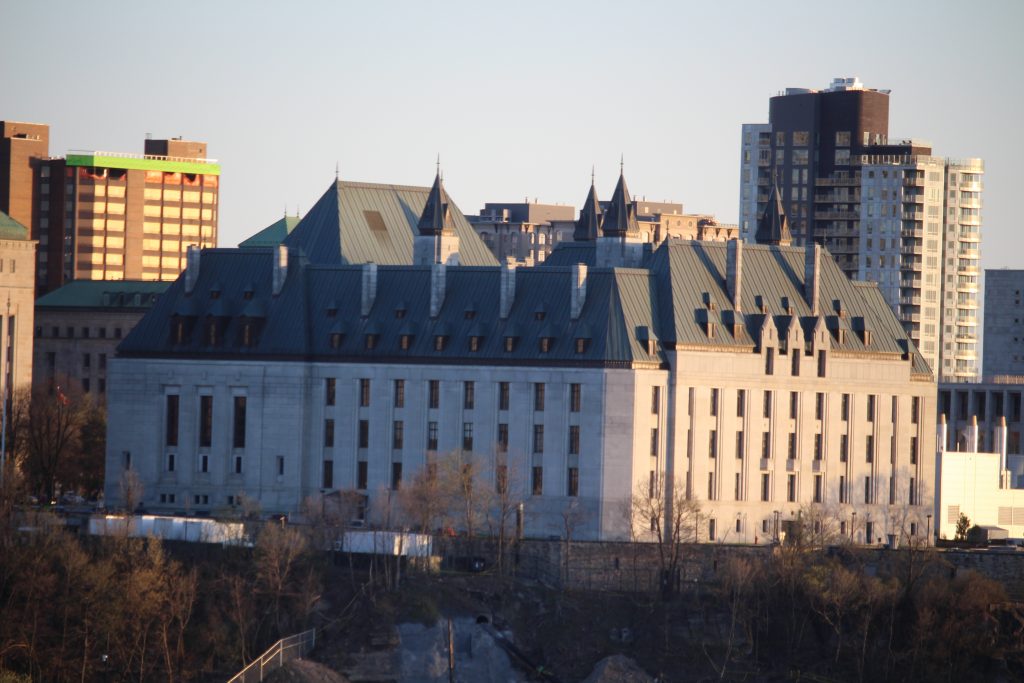- Supreme Court To Hear Church Case
The Supreme Court of Canada (SCC) has agreed to hear the case involving the Ethiopian Orthodox Tewahedo Church of Canada St. Mary Cathedral v. Aga et al. The case involves an internal church dispute that found its way into the civil courts. In 2018, the SCC in the Wall decision ruled that voluntary religious communities are free to determine membership in accordance with their own culture, beliefs and practices.

However, in the Aga case, the Ontario Court of Appeal created confusion by deciding that courts can review decisions on membership of religious organizations. The ONCA went so far as to say that mere membership in a church is a legally enforceable contract: a church’s constitution and by-laws automatically “constitute a contract setting out the rights and obligations of members and the organization”, regardless of whether the member has “specific knowledge of or expressly consents to the specific terms in the by-laws” (paras. 40, 43).
That decision directly conflicts with the Wall decision.
But there is more. The ONCA also created confusion when it said that donations to a church were evidence of “consideration”.[1] The legal term “consideration” refers to the exchange within a contractual relationship. For example, imagine that you buy a car for $5,000.00. The $5,000.00 you give to the vendor is “consideration” in return for which you get the vehicle. The car is also “consideration,” which must flow both ways. Another term often used is quid pro quo, Latin for “something for something.”
Now consider: if one’s tithe to a church were “consideration”, that would mean the offerings were no longer voluntary gifts, but the fulfillment of a contract, paid with the expectation of “something” in return. What possibly could that “something” be? What does the church owe the member? It would appear that the ONCA is saying, “Well that ‘something’ is found in the ‘contract’ which is the constitution and by-laws of the church.”
Unfortunately, the ONCA has it wrong.
First, it would be news to the Canada Revenue Agency that donations given to the church are “consideration.” Under such a scenario, gifts to a church are no longer voluntary but obligatory to meet the terms of the “contract”. That would mean that donations are not donations and, therefore, no charitable tax deduction receipts should be issued.
Second, church membership is entirely voluntary. There is no consideration. There are no property rights. There are no civil rights. That means a church may accept or reject any person, based on its own, self-determined rules. Religious groups are composed of people who share certain beliefs and practices. Members of a church may see themselves as part of a spiritual family with a God-given responsibility to care for one another (e.g. Galatians 6:2), but this is not a contractual relationship in the legal sense. Thus, secular courts have no legitimate business to get involved in these relationships.
The SCC’s decision to hear the Aga case is a huge development, in part because the ONCA decision was unanimous 3-0. It is rare that the SCC will hear a civil appeal from an appellate court that was so one-sided. However, it is obvious that the SCC recognizes the dramatic challenge the ONCA decision poses to its Wall decision.
I hold that the SCC’s review of the ONCA is a positive development for the right of religious communities to be free from state interference in internal matters. It is an issue we thought was settled in 2018, but we now must argue it again one more time.
CCCC’s will intervene in this appeal to remind the SCC how important this issue is to our members. We will need your continued support to do so. Please consider helping us to maintain the freedom of religious communities by donating to the Legal Defence Fund here.
[1] “In this case, the appellants were not simply adherents of the faith. They applied to be members of the Congregation and offered consideration in the form of monthly payments” (Aga, at para. 46, emphasis added).


I disagree on the legal aspect but agree on the principles provided to each Canadian as defined in the the Canadian Charter of Rights and Freedoms (federal obligations required where they have jurisdiction) and any of the provincial Bill of Rights (provincial obligations required where they have jurisdiction). Assembly, freedom of religion and the like.
Legally something else happens when a group of people decide to collectively, by way of contract, manage or own property together. Formerly, a congregation/group of individuals meeting in homes, coffee shops, under trees or wherever is free to carry on with none of their Charter rights abrogated, abridged or infringed upon.
The moment they collectively become a legal entity they fall under one or both levels of compensation. Without registered charity status they individually now have limited protection from being sued, etc.. They also agree to manage their property ‘by the law’ by-law according to the requirements of the Act they incorporated under.
The level of compensation increases as a member or non-member receives if they give belong or give to a Registered Charity. A whole myriad of laws requiring the handling of now ‘public’ monies as the donator is compensated by way of money for half – $50 of their ‘giving’.
A recent series of Court Cases in Alberta clarifies what obligations a congregation are now legally bound by when individuals voluntarily create their legal society. Here is a link to Canlii for a quick overview. https://canliiconnects.org/en/commentaries/38648
Thoughts?
respectfully,
Daryl
Hi Daryl,
There is no doubt that there are situations when courts have jurisdiction to intervene in internal matters of churches. However, it is rare, as in the Alberta case you refer to. My point is and the point of the Aga case, now at the SCC, is that when you have internal religious beliefs in dispute there is no room for the courts to intervene.
Thanks for sharing,
Barry